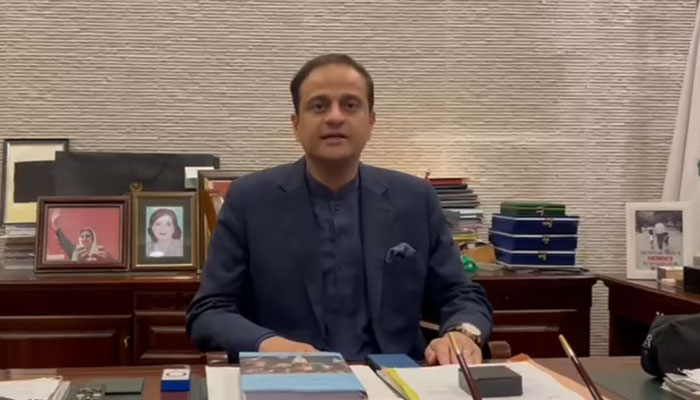You said:
Let’s answer clearly:
When Allah says: “Obey the Messenger” (طَاعَةُ الرَّسُولِ)
If the Messenger’s
only job was to transmit the Qur’an:
- Why does Allah say:
“Take what the Messenger gives you and abstain from what he forbids.” (59:7)
And for the Nth time that verse is about distribution of war booty among the people has absolutely nothing to do with hadith. I know hadith apologist just love to partially quote this verse because that is the closet they have to something that could somewhat justify their hadith. And if they print the entire verse then people can see through the ruse.
Why does Allah threaten punishment for going against the Prophet’s personal judgment:
Again mixing things up. In context while reading the preceding and following verses clearly showing people how to behave in the presence of the prophet, the proper etiquette and respect to be shown - While he was alive and with his people Does the prophet call to you every now and then? And if he does please tell me how someone who has passed away 1400yrs ago talks to you today? There are passages of the Quran that are time bound. Like 55.53, can you enter the prophets house unless he gives you permission for a meal today? And leave once you are done having your leave because that is annoying to the prophet but he is too shy to say so himself? Can that happen today.
AND don't say thats a general command which teaches us good manners. I have friends who don't need permission to come into my house, and I would rather they stay around for "casual talk" afterwards rather than leave. In fact today it is considered bad manners to show up for an invitation, the just eat quickly and then immediately leave afterwards.
- “...so that you may explain to mankind what has been sent down to them.” (16:44)
That is
guidance outside the text —
endorsed by the Qur’an itself.
Yes explained. If I tell you something, you don't get it the first time or don't fully get it I'll explain it to you, so you can understand and reflect. HOW does that even remotely by the farthest stretch of the imagination means we need to follow the hadith? Just how!?!?
But in every place where Allah pairs "Book and Hikmah", He is referring to divinely guided teachings alongside revelation:
Is Allah short on words? Does he not have the vocabulary? When Allah wanted it to mean guidance he used the word guidance. Huda or Hudan. The Quran explains itself but you hadith apologists refuse to believe it because then it will make your hadith i.e religion redundant.
Lets see how the Quran explains what is hikmah.
Taking the main points from the following verses
Do not associate partners with Allah (17:22)
Be kind to parents (17:23)
Give to the needy (17:26)
Do not be arrogant (17:37)
Walk humbly and speak moderately (17:37)
And finally Verse 17:39
That is from what your Lord has revealed to you, [O Muḥammad], of
Hikmah. And, [O mankind], do not make [as equal] with Allāh another deity, lest you be thrown into Hell, blamed and banished.
So the Quran has clearly explained what the hikmah that was revealed to the Prophet was. Not some manmade books
Now to your The Book and the Hikmah when mentioned together mean hadith. Verse 3:48 And Allah will teach him (Prophet Isa) the book and the wisdom, the Torah and the Gospel. Does this mean Allah gave Isa the torah AND Injeel and what Kitab and what wisdom or as you claim divine knowledge is he talking about? Is Prophet Isa is also getting the Quran (Al Kitab) and Prophet Muhammads hadith ( Hikmah )too along with the Torah and injeel? So obviously hikmah in no way can mean your hadith in any usage.
And your own argument defeats you: If "Hikmah" was already included in "Book" — the verse becomes pointless repetition.
Allah repeats so many things over and over again are they all also pointless repetition?
Sahih Bukhari includes hundreds of mutawatir (mass-transmitted) reports.
ABSOLUTE WHITE BLANTANT LIES
Just goes to show, like every other hadith apologist on this forum you don't have the foggiest idea about your own hadith or even have ever read much of them at all and all your "knowledge" is from chatgpt and whatever result comes top in google. The most generous number given by your own scholars like Suyuti is between
10 to 20 mutawattir hadith in the entire
Sahih Bukhari and if you want to go with the strict standards by the likes of Al Asqalani one of the more famous narrators of Bukhari only
2 or 3 hadith can be said to be mutawattir
And this might come as a surprise to you. In the entire hadith corpus the most generous figure given by once again Suyuti is around 113 hadith to be mutawattir and by his own admission that number is reached by only counting hadith that are similar in meaning but not similar in wording and transmission i.e
less than 1% of hadith in the entire hadith corpus can be classified as muttawatir and that too by stretching the definition of mutawatir.
That’s your ignorance of Hadith science
I'm gonna try to hold in my laughter here
Even khabar wahid is accepted in aqidah and law — if the narrator is trustworthy.
Like I said earlier this is NOT a good thing but a real dangerous thing. And one of the biggest problem with following hadith. Scholars come along and change classification of hadith all the time. Like the ruling that cupping does not break the fast later changed that it does. And then later again they found that hadith to be weak and went back to the original.
Before some jurists ruled that a maternal grandmother doesn’t inherit, based on a khabar wāḥid that excluded her. Later, the ruling was revised, and maternal grandmothers were included in inheritance law.
So imagine how many Grandmothers either benefited wrongly or were wronged badly ( depending on how you look at it ) because of law based on khabar wahd and since 95% of hadith is khabar wahid and traditional Islam majority of which is based on hadith has a 95% chance that any crucial part of it can change. As deemed fit by Abu Fulanas and Ibn Dhumkanas.
- 4:59
- 59:7
- 24:63
- 16:44
- 33:21
- 9:33
- 48:28
Have explained it and proved these have absolutely nothing to do with hadith at all, more than once and by more than one person
You mock scholars as "Abu Fulan" — yet quote no serious tafsir yourself
Comprehension problems much, when I don't care about Abu Fulanas and Dhimkanas why would I care about their tafisirs serious or not.
The Only Tafsir I care about is Allah's tafsir
25:33
وَلَا يَأْتُونَكَ بِمَثَلٍ إِلَّا جِئْنَـٰكَ بِٱلْحَقِّ وَأَحْسَنَ تَفْسِيرًا
These are not just “opinions” — they are the very people whose understanding of Qur’anic Arabic, tafsir, and fiqh has been relied upon for over 1,000 years. Their work isn’t followed blindly — it’s studied, preserved, and taught in every corner of the Muslim world.
Who cares? Does Allah tell me to follow them or follow Allah and the Quran? And I don't follow their version of mushrik Islam so they mean absolutely nothing to me. I only use them to prove a point to their people. Like using examples from the bible to show christians how corrupted it is.
Pundits, monks and rabbis have done the same but much harder and for more centuries than these Abu fulanas so shall we now follow them?
Time and numbers is a slippery slope if you start providing them as evidence for your hadith.
You, Quranists, want an Islam:
With no prayer method
- No Prophet’s example
- No Zakat calculations
- No spiritual structure
Oh look more lies and false allegations.
What authority do you have to claim “hikmah doesn’t mean this” or “the verse doesn’t mean that”?
Allah gave that authority, Allah gave me Aqal and common sense and instructed me to use those to understand and ponder the deen of Allah. So I will follow the it according to my Aqal and god given commonsense not yours and not Abu Fulanas and not Abu Dhimkanas and not blindly follow this mullah and that imam.
Surah Al-Anfal (8:22) “Indeed, the worst of creatures in the sight of Allah are the deaf and dumb — those who do not use reason.”
—
Surah Al-Furqan (25:73): “And those who, when reminded of the verses of their Lord, do not fall upon them deaf and blind.”


































